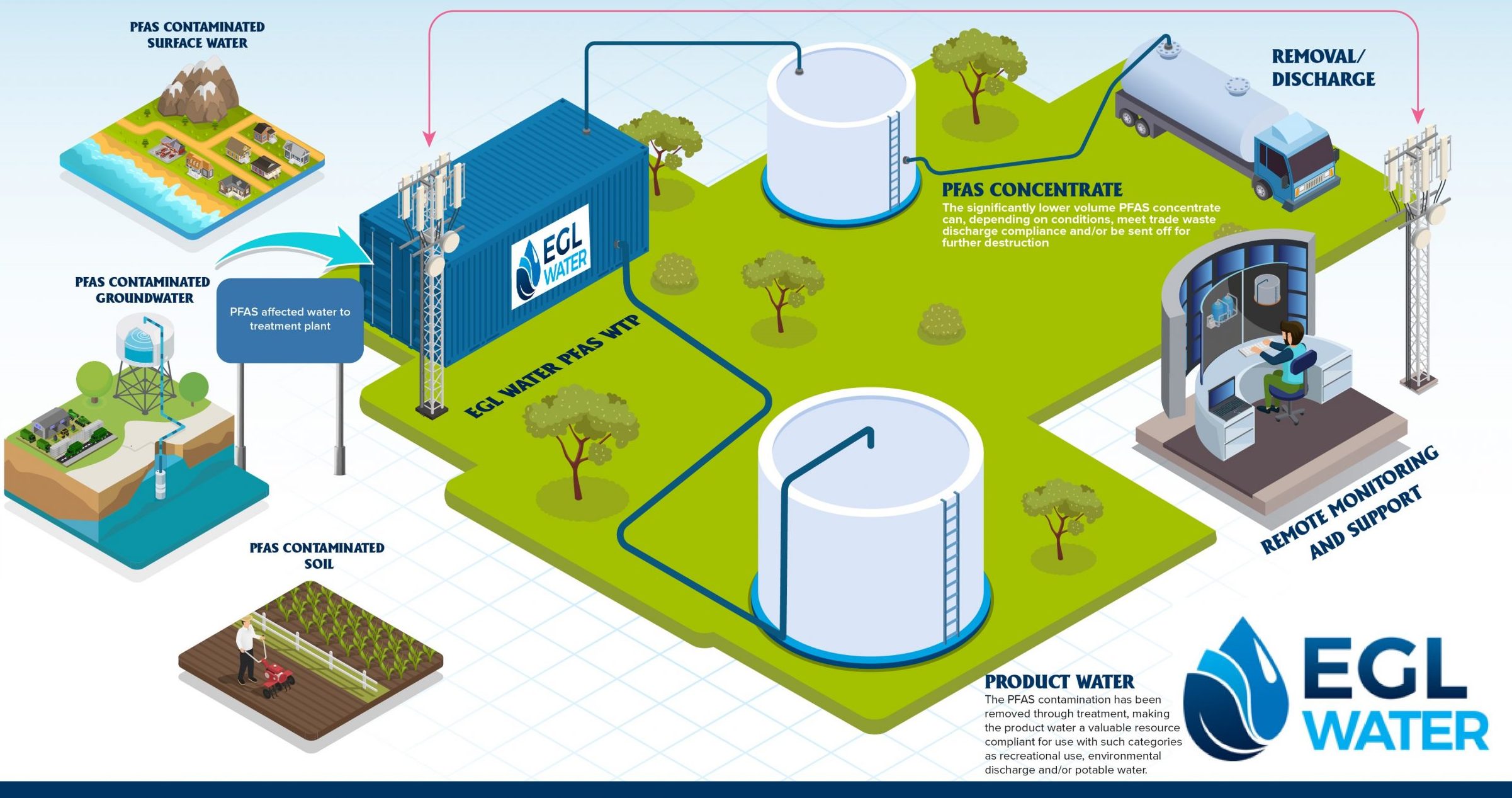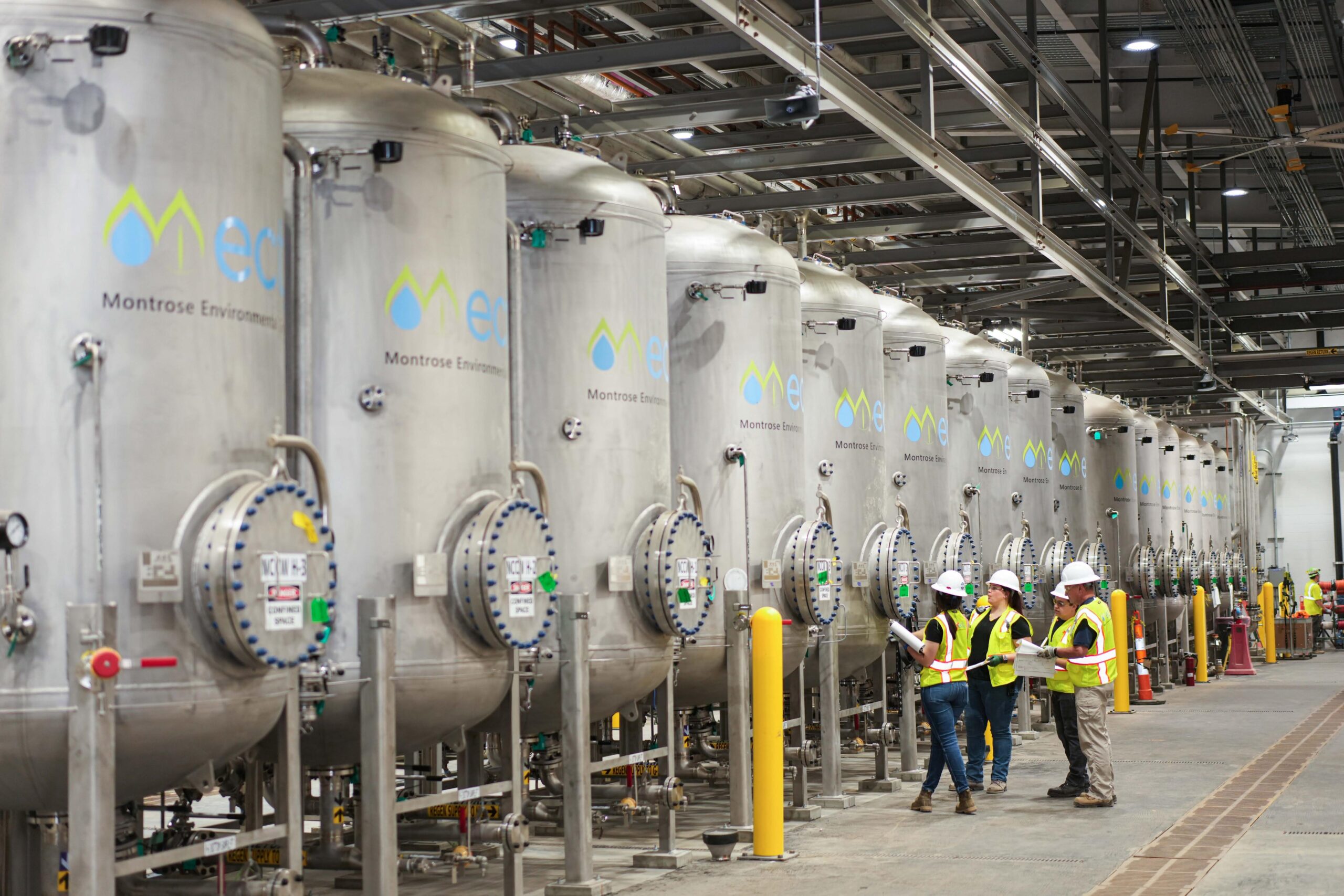How M270 Waste Management Help in the Management of Toxic Materials
Wiki Article
How PFAS Therapy Makes Certain Tidy and Sustainable Water
The existence of PFAS, frequently known as "for life chemicals," postures significant difficulties to water high quality and public health and wellness. The effects of these therapies extend beyond instant health advantages; they elevate crucial questions about long-term water monitoring approaches that have to be resolved to make sure a durable future.
Understanding PFAS Contamination
PFAS, or per- and polyfluoroalkyl compounds, have actually arised as a significant environmental worry as a result of their prevalent frequency and persistence in the atmosphere. These artificial chemicals have actually been made use of in numerous commercial applications and customer products, including non-stick kitchenware, water-proof clothing, and food packaging, due to their one-of-a-kind residential or commercial properties such as water and grease resistance.The contamination of soil and water resources by PFAS takes place largely through industrial discharges, firefighting foam usage, and leaching from garbage dumps. pfas management. When launched, these materials are immune to destruction, leading to their accumulation in the environment. This persistence raises vital concerns, as PFAS can take a trip lengthy distances through groundwater and surface water systems, impacting alcohol consumption water supplies and communities

Wellness Threats of PFAS
The perseverance of PFAS in the environment raises considerable health and wellness issues for individuals subjected to these compounds. Referred to as "permanently chemicals," PFAS do not break down easily and can build up in human bodies over time. Research has linked PFAS exposure to numerous adverse wellness results, consisting of immune system disorder, liver damages, and raised threat of specific cancers - pfas management. Significantly, studies have actually revealed raised cholesterol degrees and prospective effects on reproductive and developmental health, particularly in pregnant people and infants.The universality of PFAS in consumer items, such as non-stick cooking equipment, water-repellent materials, and food packaging, further intensifies the danger of exposure. Consuming alcohol water infected with PFAS is a considerable issue, as these chemicals can seep into groundwater sources. Prone populations, consisting of kids and those living near commercial sites, might encounter increased risks as a result of their creating systems and possible for higher exposure levels.
As recognition of these health and wellness risks remains to grow, regulatory companies are beginning to establish standards for PFAS degrees in alcohol consumption water. Public health efforts are important to mitigate direct exposure and protect areas from the lasting impacts of these Continue dangerous compounds.

Innovative Treatment Technologies
Just how can we efficiently tackle the obstacles postured by PFAS contamination in use this link water sources? Cutting-edge treatment modern technologies are emerging as important remedies in the mission for tidy water. These techniques concentrate on the removal or damage of per- and polyfluoroalkyl substances (PFAS), which are well-known for their perseverance in the atmosphere.One encouraging approach is adsorption utilizing innovative materials, such as triggered carbon and ion exchange materials. These materials have revealed efficacy in catching PFAS particles from water. Another notable modern technology is membrane filtering, which uses nanofiltration and reverse osmosis to different impurities at the molecular level, therefore giving a barrier against PFAS.
Furthermore, progressed oxidation processes (AOPs) utilize solid oxidants to break down PFAS compounds right into safe byproducts. This approach is particularly efficient for dealing with highly polluted water sources. Bioremediation strategies, using particular microbes, are also being checked out to weaken PFAS.
As research continues, hybrid systems that integrate numerous technologies may supply enhanced efficiency, dealing with the complexities of PFAS contamination. The advancement and execution of these innovative therapy modern technologies are necessary steps towards making certain the safety and sustainability of our water resources.
Advantages of Reliable PFAS Treatment
Successfully dealing with PFAS contamination in water resources significantly improves public health and environmental safety. PFAS, typically referred to as "permanently chemicals," are immune to destruction and can gather in the body, bring about severe health risks such as cancer cells, liver damages, and body immune system disorder. By carrying out effective therapy techniques, areas can minimize exposure to these unsafe compounds, ultimately enhancing the health end results of their populations.
In addition, successful PFAS therapy adds to the preservation of regional communities. Contaminated water can negatively affect water life and disrupt the fragile balance of regional environments. By making sure tidy water, treatment procedures protect biodiversity and keep ecological stability.
In addition, efficient PFAS removal can promote public self-confidence in water quality. When communities are guaranteed that their alcohol try these out consumption water is cost-free from damaging impurities, it advertises a sense of security and health. This trust fund is important for neighborhood involvement and assistance for ongoing water administration efforts.
Future of Water Sustainability
In the middle of expanding concerns regarding water high quality and shortage, the future of water sustainability depends upon cutting-edge methods and collective efforts. As neighborhoods deal with the impending hazards of impurities like PFAS, the development of advanced treatment technologies is vital. These innovations not just concentrate on the elimination of dangerous materials yet additionally advertise the reuse and recycling of water, consequently lowering total need.Additionally, efficient water administration plays a critical duty in making certain lasting practices. Policymakers should integrate scientific study with governing structures to establish clear guidelines for water use and therapy. Stakeholder involvement, consisting of regional communities and industries, cultivates a feeling of shared responsibility and encourages lasting methods across various fields.
Financial investment in infrastructure is also crucial; upgrading aging systems to integrate modern-day filtration and purification methods can considerably enhance water top quality. Welcoming eco-friendly technologies, such as all-natural filtration systems, can give environment-friendly services.
Inevitably, the future of water sustainability lies in an all natural technique that combines modern technology, policy, and neighborhood involvement. By focusing on these components, we can secure our water sources for generations to find, ensuring clean and sustainable water for all.
Verdict
To conclude, the reliable treatment of PFAS is crucial for making sure tidy and sustainable water. By utilizing innovative technologies such as turned on carbon adsorption, membrane filtering, and progressed oxidation procedures, communities can dramatically reduce the health and wellness threats related to these pollutants. In addition, the integration of these treatment techniques sustains community security and boosts biodiversity. Eventually, durable PFAS therapy techniques contribute to long-lasting strength in water management, fostering public rely on water top quality and advertising lasting techniques.Report this wiki page